
By Jonathan Wojcik
ENTRY 05: THE BABADOOK
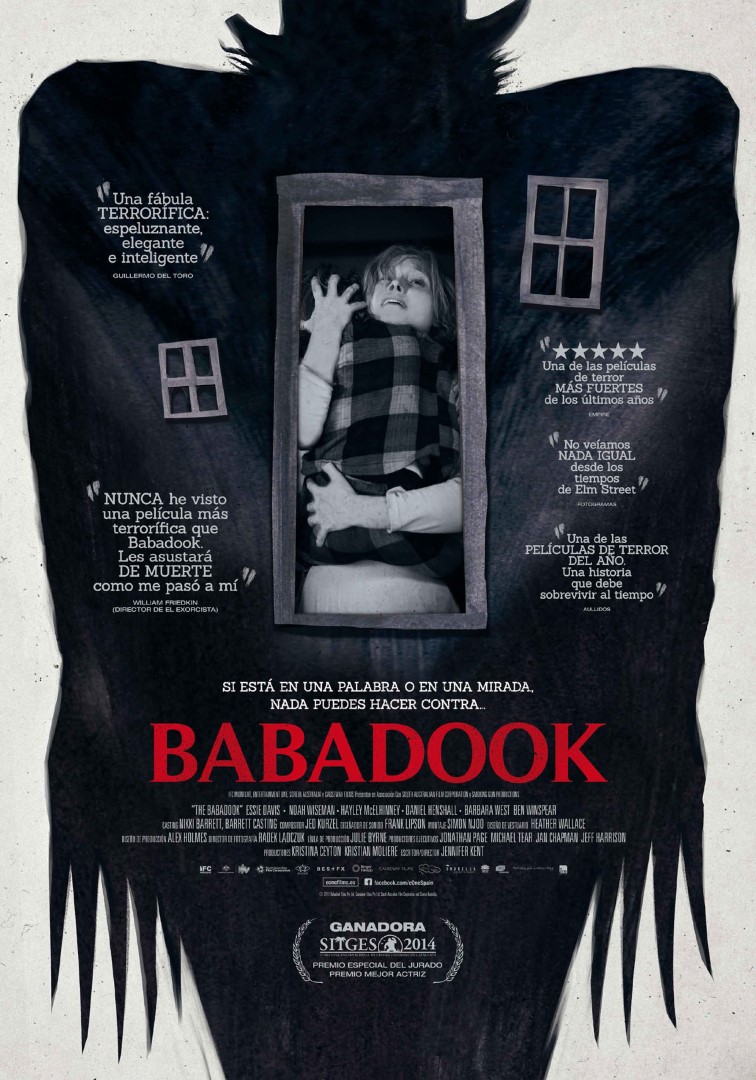
Written and directed by Jennifer Kent and released in 2014, it's hard to believe the Babadook is approaching ten years old by now; to me, it still feels like one of the "newest" or most "modern" horror movie phenomena, and everyone by now has probably at least dimly heard enough about it that they might not have expected it to show up in this list. The Babadook, however, is no simple spirit or demon...
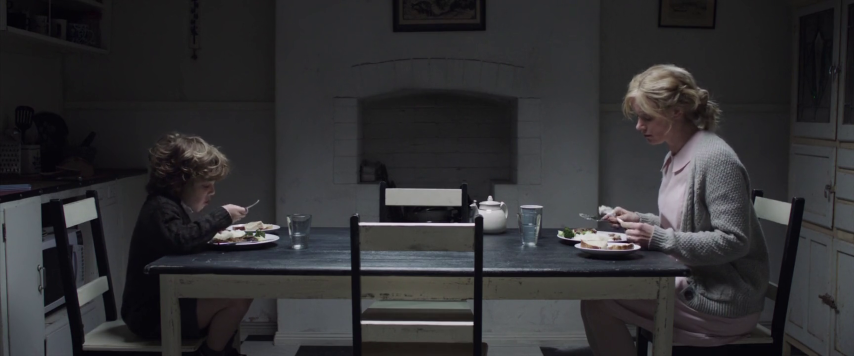
Amelia Vanek (Essie Davis) has been a single mother for the past ten years. Her husband, Oskar, had been rushing his pregnant wife to the hospital when he fatally crashed their car, and she has raised their son Samuel (Noah Wiseman) all alone ever since, which has never gotten easy for her. It doesn't help that Samuel is such an "odd" little boy and plagued by problems of his own; his fixations on magic tricks and building his own complex "weapons" make him a bit of a social misfit, he suffers from chronic insomnia and his imagination is vivid enough that he still fears monsters hiding under his bed. Other parents and teachers essentially see him as a "bad" or "troubled" child, and cast a lot of their judgment on his mother.
Amelia and Samuel still regularly read children's books together, but one day, Samuel finds a pop-up book in his room that neither of them recognize. The Babadook!
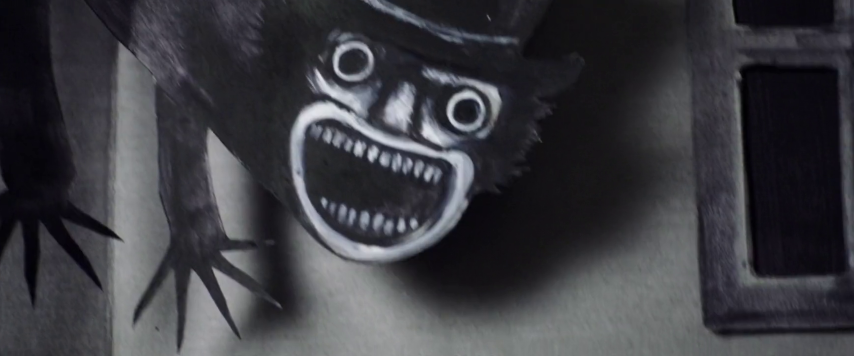
The titular entity is some sort of child-stalking bogeyman figure you supposedly "can't get rid of," presented in stylish charcoal-style art that calls to mind a
lot of grim children's books I can remember from the 80's and 90's; it's really not unrealistic that such a book could exist at all. Samuel, however, finds the cardboard creature far more alarming than is typical for someone his age, and for that matter so does Amelia. They're both disturbed by it to a somewhat unrealistic extreme, but I like to think that's not an accident. Almost as if, on a subconscious level, they already know what the book is
really about.
Over the next few days, Samuel's behavior grows increasingly erratic. His insomnia, fearfulness and anxiety worsen, he believes the Babadook is a real presence following him around the house and he blames it for a number of unsettling or even dangerous phenomena, worst of all the presence of broken glass in some of his mother's food. Amelia rips up the book and throws it in the garbage, and hopes Sam might improve after he spends time with other children at his cousin's birthday party, but when that same cousin teases him for having a deceased father, he shoves her and accidentally breaks her nose. Amelia takes him home, more furious that her sister has now admitted she "can't stand" Samuel, and a bad enough day takes an even darker turn when he begins to suffer a seizure in the backseat of their car.
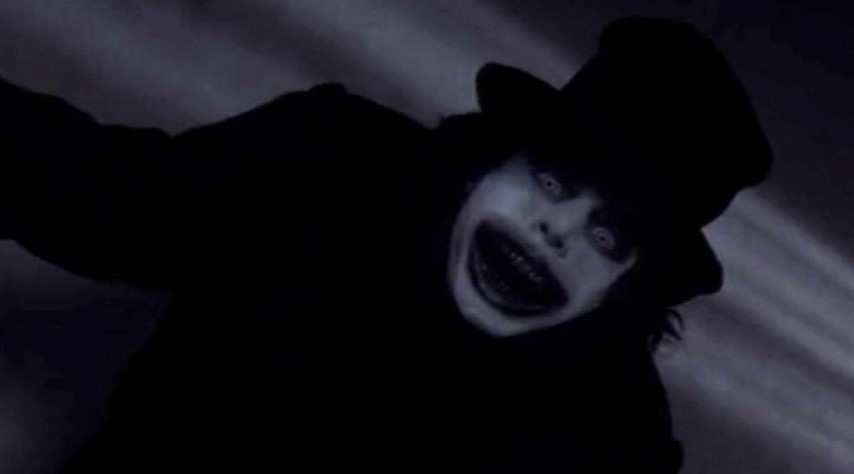
Samuel pulls through well enough, but shortly after his return from the hospital, Amelia finds The Babadook on their front porch. Not the creature, but the same book that should have been in a landfill by now, patched back together and inexplicably modified to show a mother figure actually murdering her own child. She attributes this to some sort of stalker, but no one at the police station takes her seriously, and she leaves when she sees what resembles the Babadook's clothes hanging up on a wall. That night, she has a vivid nightmare (or is it?) of the being crawling into her bedroom - on the ceiling, naturally - and attacking her.
The mental health of both Amelia and her child continues to suffer, and their relationship deteriorates with it. Deprived of sleep, tormented by strange nightmares and still bitter, deep down, about her husband's death, Amelia becomes increasingly short-tempered with Samuel and even has horrific visions of harming or murdering him. Eventually, she hallucinates Oskar himself, promising that he'll return to her in exchange for their son, but she correctly guesses that it's a manifestation of the Babadook in disguise. Unfortunately, the creature manages to take possession of her anyway, and more unfortunately uses her to kill Samuel's dog before attempting to kill Samuel hismelf.
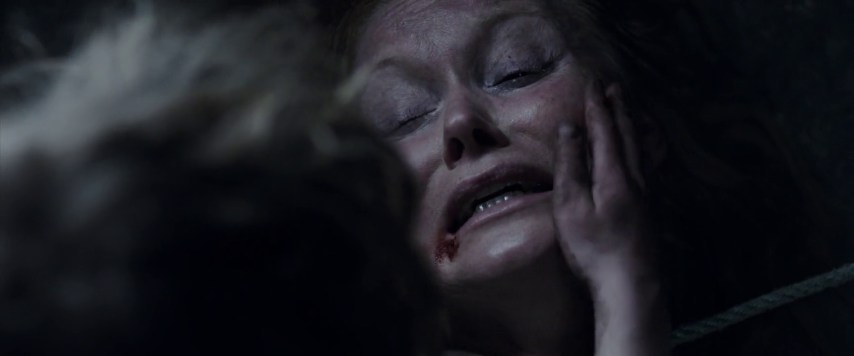
Samuel fights back with the power of being a quirky child genius protagonist, tricking Babadook-Amelia into getting knocked out and tying her to the basement floor. She viciously threatens him when she awakens, years of repressed bitterness brought to the surface by the malevolent entity, but Samuel only hugs and cuddles his mother anyway, caring about her all the same despite everything. This causes her to vomit up the being as a steaming, tar-like sludge as she comes to her senses, her maternal love prevailing over the hatred the being fed upon. When the Babadook invisibly rips Sam from his mother's arms and drags him back upstairs, Amelia chases after them and confronts the monster in both a narratively and literally emotional battle.
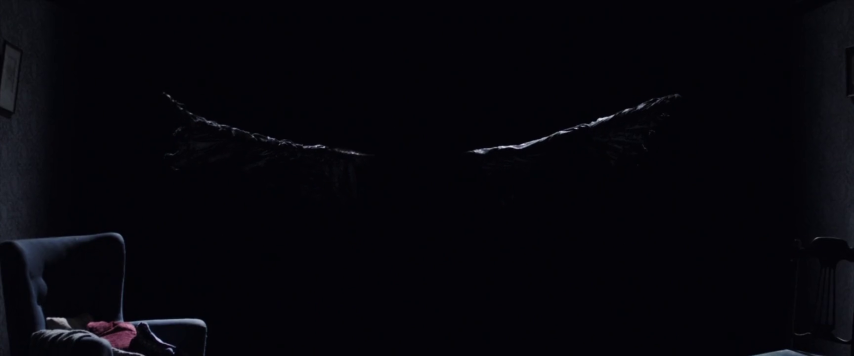
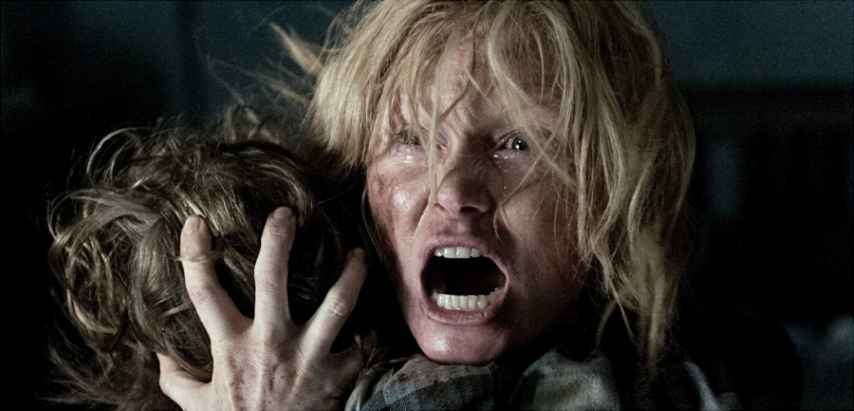
The Babadook attempts to reassert its dominance and influence over Amelia in what for all the world most closely resembles the threat display of a cornered animal, stretching into a looming, black-winged figure that screeches like some prehistoric reptile. Unimpressed, Amelia shields Samuel and rages right back at the monster, roaring that it can't have her son until its ominous form shrinks, collapses, and finally flies off in terror to the basement, slamming the door behind itself.
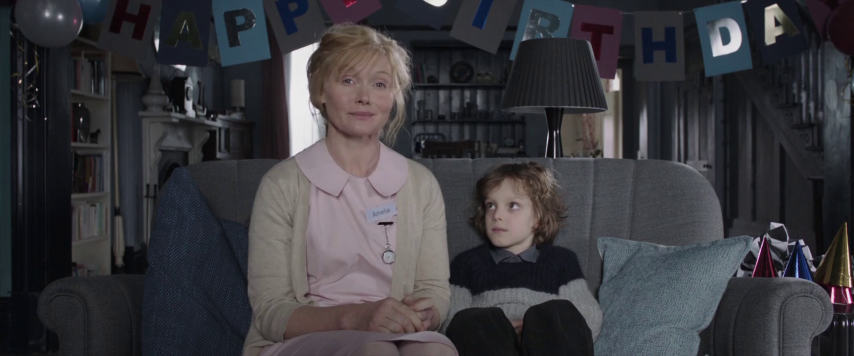
The next thing we know, Amelia and Samuel seem to be doing well, clearly happier and healthier both at home, work and at school. But while Samuel helps his mother tend to a backyard garden, the two seem to be collecting something from the soil, and we're not sure what it is until the very final scene.
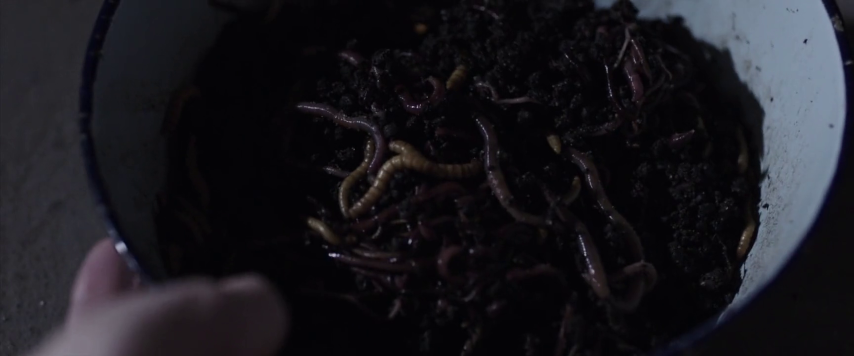
Amelia reenters the basement with a small bowl of live worms, and leaves it at the edge of pitch darkness. Something unseen takes the offering, and for a brief moment, Amelia seems possessed once again with some sort of twisted rage, her body contorting under an eerie, howling light. But it's over quickly, and she's back to her old self by the time the credits roll.
MONSTER ANALYSIS: THE BABADOOK
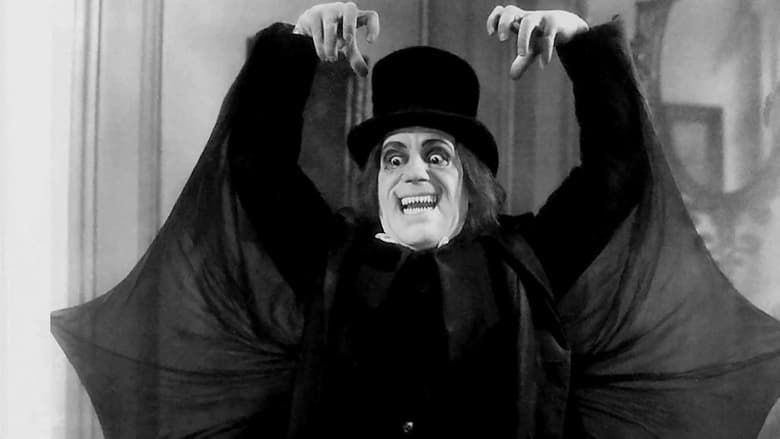
If you're one of those who absorbed your knowledge of The Babadook through cultural osmosis without actually seeing the movie itself, you've likely never heard of it as anything other than some kind of straightforward, literal demonic entity, but I think it's still more nuanced than that even when taken purely at face value. From its design and attire to its movements, the Babadook's look and feel draws heavy inspiration from 1920's horror films, especially the infamously lost
London After Midnight (above) and the nearly-lost
Nosferatu, dreamlike figures that mesh well into a sort of all-purpose childhood bogeyman with the vibe of an unintentionally terrifying imaginary friend. Even the name has an old fashioned fairy story quality to it, bringing to mind vague monstrous figures such as
bugbears, tommyknockers or the
tailypo, and I'm personally most intrigued by its subtle bird-like qualities; that it can be satisfied with meals of only worms and that its "true form" is an ominously ravenlike shape.
But as cool as all this is, the point of the Babadook isn't just the apparition itself.
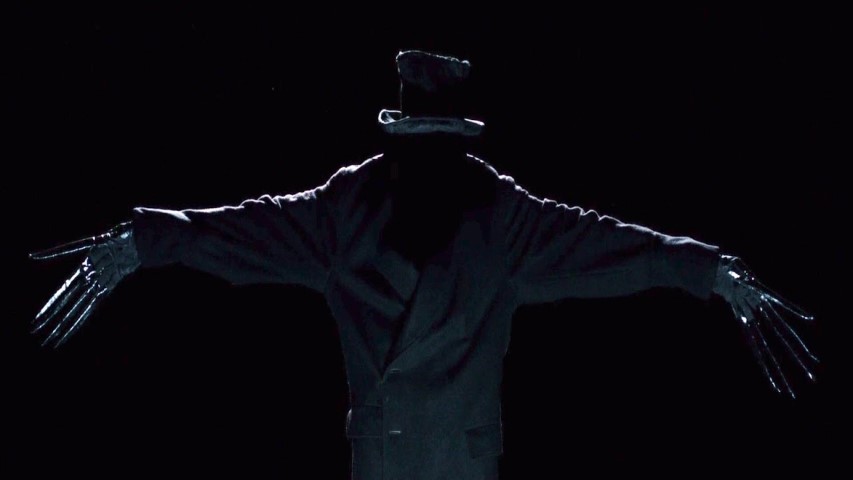
I mention that the final battle resembles a "threat display," and the very last time we see the Babadook on-screen before it crumples in defeat, it even takes on the unmistakable pose of a "scarecrow;" something empty and harmless with a superficially frightening facade. This does well to emphasize that the "Babadook" is not working alone, but a "mask" being worn by the true darkness at work: the deeply buried resentment that Amelia has for her own son.
We've already seen how monsters can be symbolic of deeper, more realistic issues that a writer wishes to explore, but in many horror films, those issues are a subtler background presence or even kept completely out of sight, allowing the monster alone to stand in for them. The Babadook, conversely, is one of those special instances in which both the symbol and the subject are equally present in the lives of these characters, impossible to separate from one another.
It could literally exist, yes, as some psychic vampire born from or drawn to Amelia's tormented mind, but it could just as easily be delusion cooked up by her subconscious, or even
strictly narrative device - a personification of her feelings that only we the audience are perceiving as an actual on-screen monstrosity. But in all cases, the consequences and even the solution remain strikingly unchanged: this dark force, real or not, drives a mother to such depths of madness that she comes very, very close to the unthinkable, and can only be "defeated" when she
takes responsibility for it.
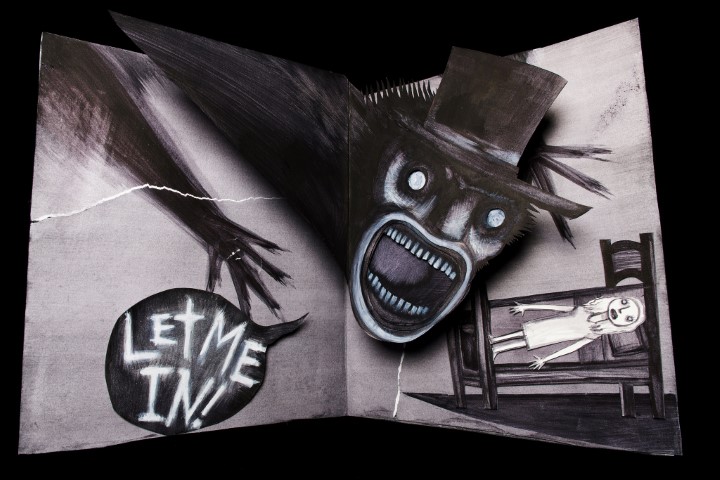
Neither the Babadook nor this emotional sickness are necessarily "malevolent;" a trauma response is, after all, more of a maladapted defense mechanism than anything else, a reflex to panic and lash out in response to anything the brain has associated with a source of suffering. And neither the babadook nor trauma can necessarily "die," only growing in power the harder one might try to push them down and ignore them, but they are something that can be
understood. You can learn to recognize what triggers their unwelcome behavior, how to avoid those situations and how to pacify the "demon" or at least keep it separated from anyone else that it might harm.
Just consider some select quotes from the official, full length version of the pop-up book:
..."If it's in a word, or it's in a look, you can't get rid of the Babadook."
..."I'll wager with you, I'll make you a bet. The more you deny me the stronger I get."
..."Whether adult or child, best to give me a home. Put the welcome mat out, with a room of my own. Accept that I'm here and from you I have grown. Keep me smaller in size, I might leave you alone."
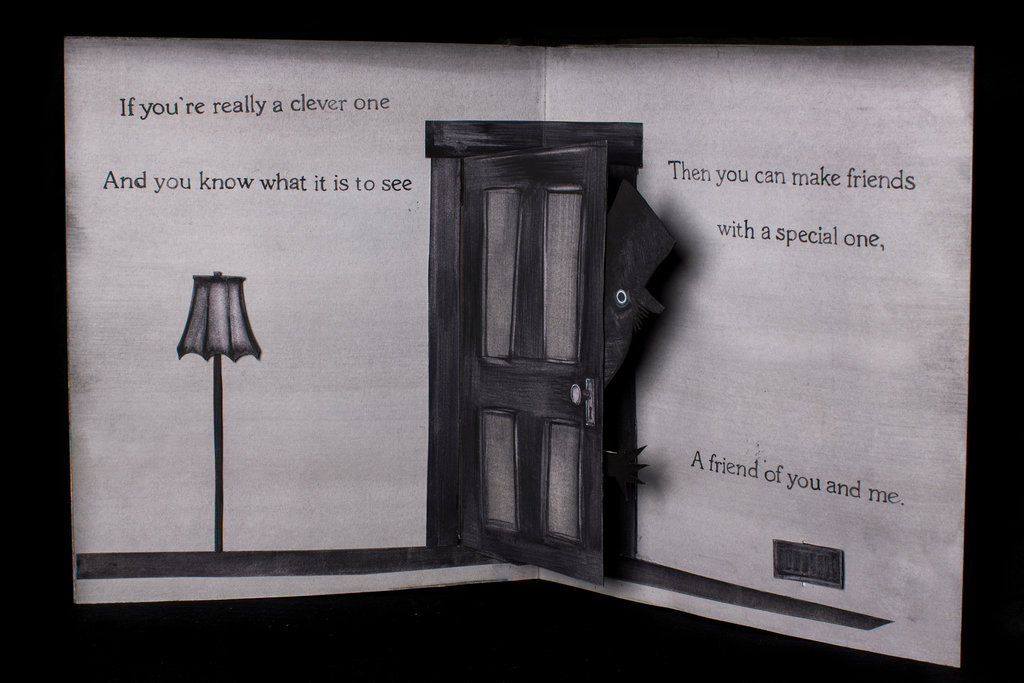
A Babadook is something that you may have to manage for the rest of your life, but that's nothing to be ashamed or afraid of; because almost everybody has to have at least a
tiny one. Maybe it's as minor as a negative experience that's left you just a little less trusting of strangers, or a whole lot more nervous of a particular environment? Maybe it's as bad as a fight or flight instinct to a given stimulus, or a disassociation response when things get overwhelming. Sometimes there's good reason for it, sometimes there isn't, sometimes you can quiet it down, sometimes it spirals out of control, and not to get off track but man that really IS exactly like a territorial bird. I mean
exactly. If you've ever known a rooster or a peacock or a male parrot or basically anything with a surplus of both feathers and testosterone you probably know what I mean.
The story of Amelia and Samuel shows us how destructive a
chicken I mean
post-traumatic stress disorder I mean Mr. Babadook can become when it's poorly maintained, yes, but manage it carefully and there may even come a time in your life where you
need its defensiveness; when your own little Babadook might know you're in danger before you do.
Not everything that comes from pain is cruel, and the sooner you accept that, the better, because...
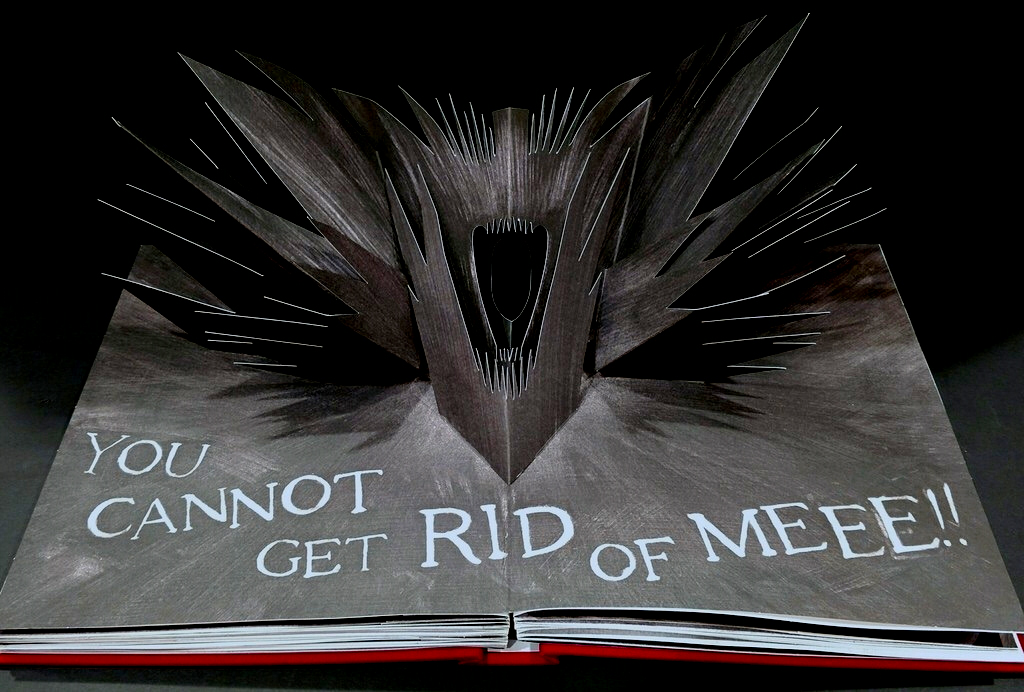
NAVIGATION:



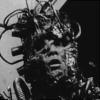


WAYS YOU CAN SUPPORT THIS SITE!





























